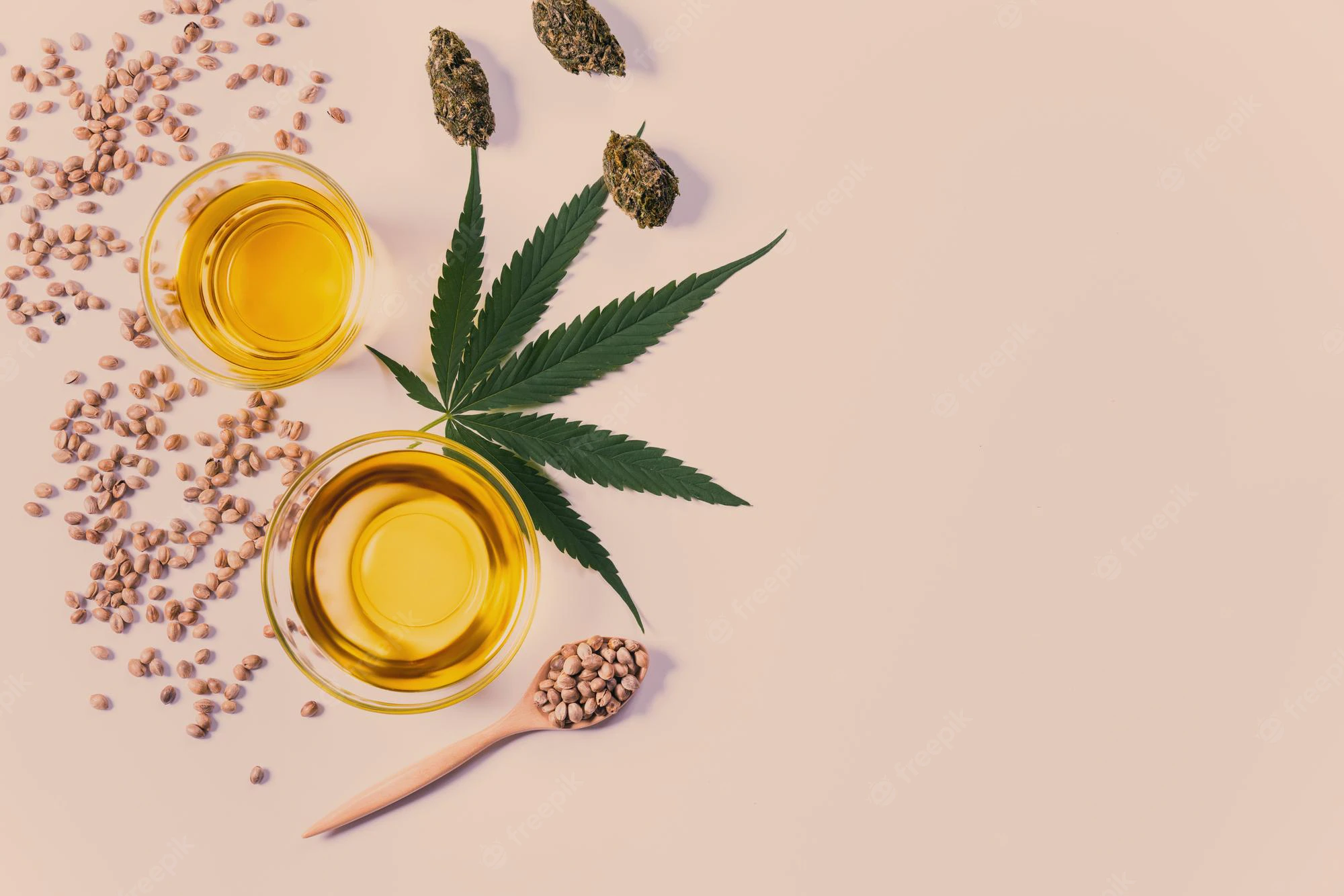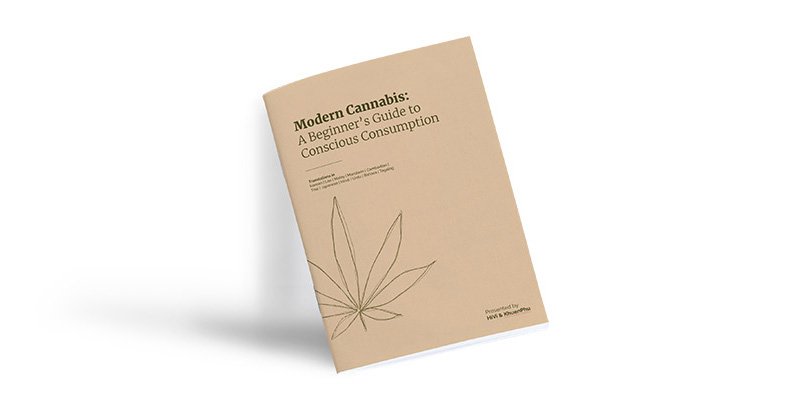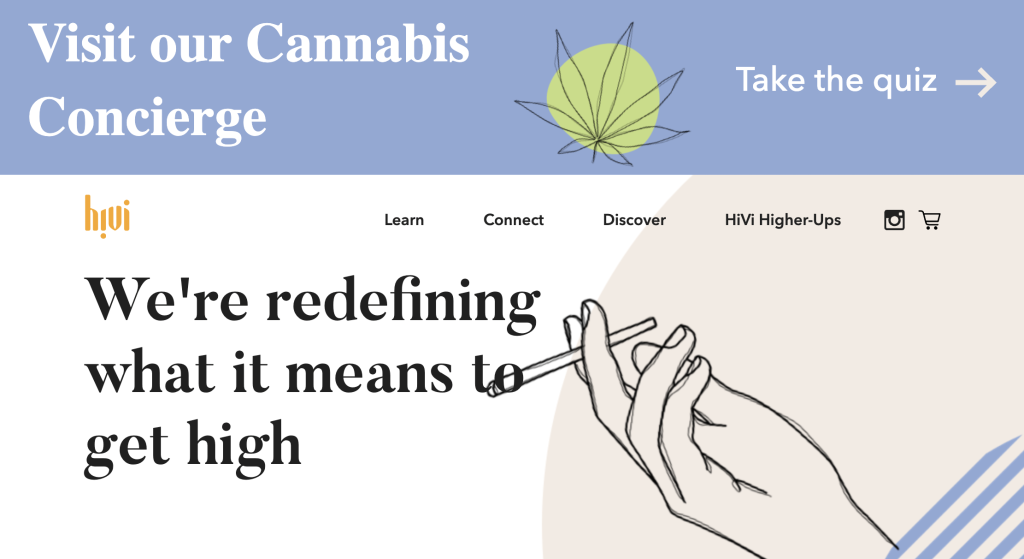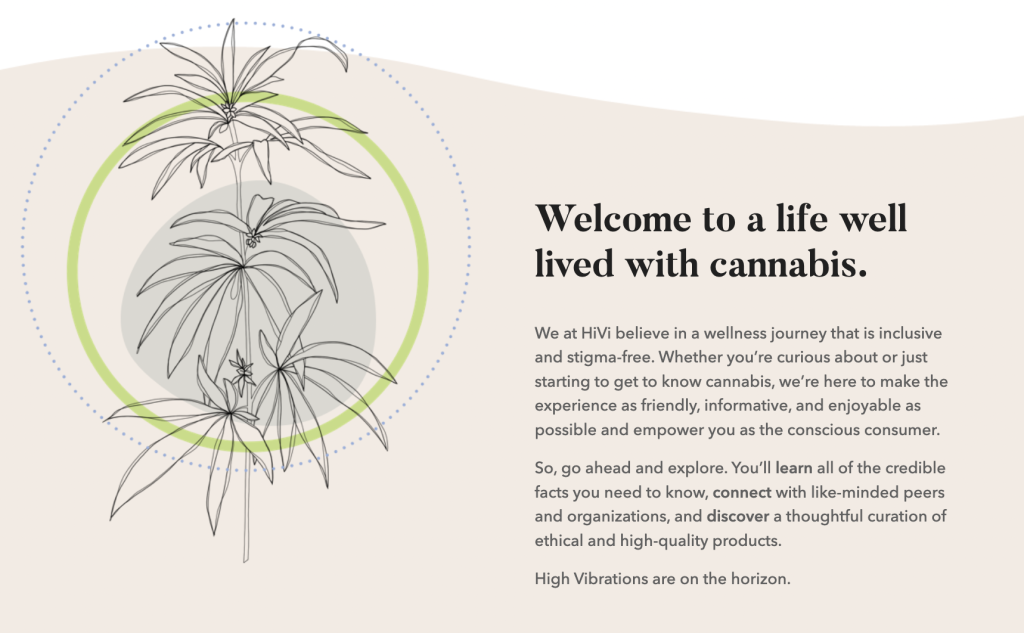What Will People Say?
Loosely translated from the Hindi words, “Log Kya Kahenge”, this is a common phrase spoken in South Asian families. Although it originates from India and Pakistan, the slogan and everything it embodies is cross-cultural— epitomizing the kind of mentality that often permeates AAPI cultures.
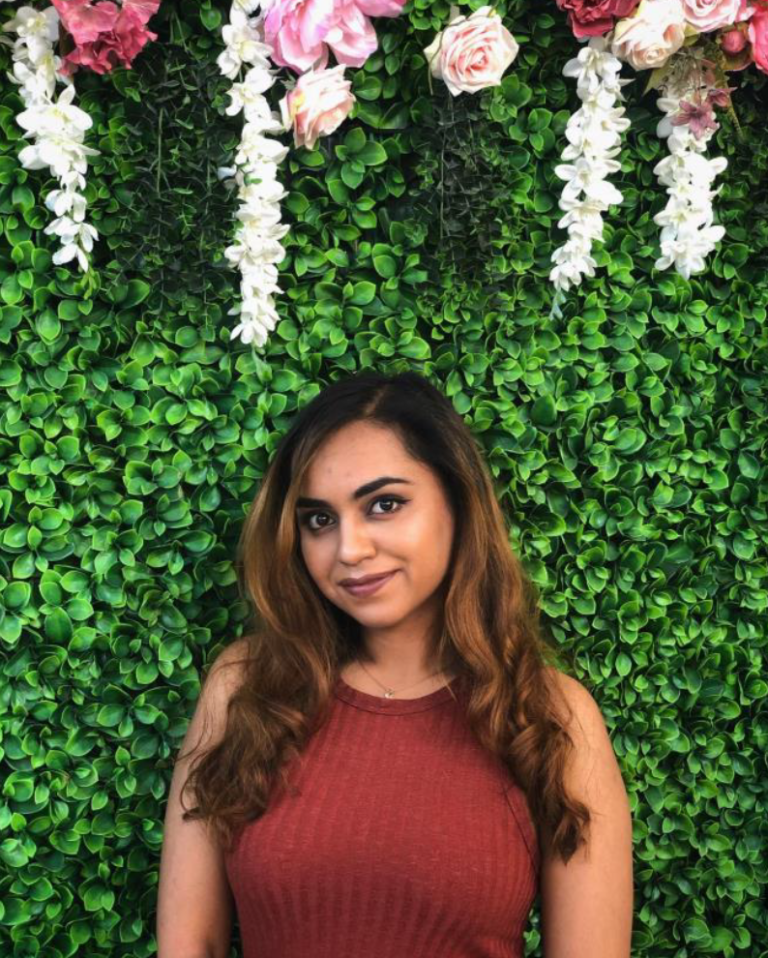
A typical parental punishment bestowed on a teenager caught smoking weed might be some light grounding, confiscating electronics, or something else along those lines. Except, this was not quite the case for Maha Haq.
Haq’s lush cannabis journey began when her mother caught her smoking as a teenager and decided to assign her an academic report on the topic of cannabis— particularly, why she thought weed was okay.
Haq attributes her mother’s unusual choice of punishment to being a clinical researcher, herself.
“She wanted to approach me not as a defiant child, but as someone who she knows will take an interest in this topic scientifically.”
Maha Haq
While writing a report outside of school hours might not be something most teenagers look forward to, Haq was truly invested— diving headfirst into the makeshift assignment. She saw this as an opportunity to not only talk weed with her mother, but to prove her passion for it.
Pulling out the big guns, Haq cited the Journal of the American Medical Association (JAMA), PubMed, and as many other research journals she could find.
All her hard work and investment into researching ultimately paid off.
“Making it educational by trying to level set with her on a shared passion for science. That’s what made her open to me. And that’s, I think, what helped me crush the stigma and taboo in my household,” Haq explains.
Haq took the time to represent cannabis with education-based research as a medical and social passion of hers, rather than a “teenage phase” or a “delinquent drug”, as weed is often stereotyped. She underscores the importance of research as a way to bridge the gap and take a step forward in seeing eye to eye with her mother who valued education above all.
However, many AAPI families do not have a medical or healthcare background to help instigate the conversation surrounding cannabis— and sometimes, there are other confounding variables involved.
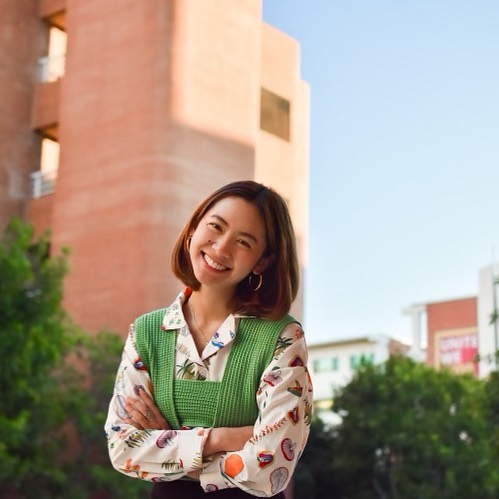
Julianna Montano is a fourth-year undergraduate student at the University of Southern California. In addition to her studies, Montano serves as the president of Cannabis at USC, an organization with the mission to lead the conversation surrounding the cannabis movement for students through social innovation, interdisciplinary research, and entrepreneurship.
Montano explains that growing up in a conservative, Catholic, Asian household as a first-generation Filipina to two immigrant parents, she felt limited in the choices of her potential professions.
“My parents really instilled this kind of epithet of taking the safe route and doing things that are practical because [they] struggled assimilating into a new country [and] starting from the ground up,” said Montano. Seeing the importance of helping others in health care and the medical field, she decided to double major in philosophy, politics and law, as well as pharmacology and drug development. “In wanting to reconcile these two academic disciplines… I came across cannabis,” she added.
While having no prior relationship to cannabis due to her background in a sheltered, conservative household, Montano entered the world of cannabis and hit the ground running.
“I just took a leap of faith. I knew how my parents would feel about it. I knew I did not fit the stereotypical model or advocate, especially since I hadn’t smoked it ever [before then],” she added.
For Montano, cannabis was a massive professional opportunity— a growing industry and outlet for her entrepreneurial spirit.
“That’s why in creating Cannabis at USC… we are really passionate about being a robust opportunity pipeline for students who want to work in the industry. It’s incredibly important for us to destigmatize the plant not only for its therapeutic value and medicinal value, but also for the kind of industry that it’s going to be. Just because you see it in a gray area right now doesn’t mean it’s always going to be like that.”
Despite her passion for cannabis advocacy and her openness as a proponent for it, Montano reveals that she finds it difficult to be open about her cannabis consumption with her anti-cannabis family.
“I am just in a really weird transitional phase in my life where I cannot fully be open about myself and my beliefs with my family. You know, the thing with generational trauma, you always have to be the one to stop it. But you can’t commit too high of a risk that you are completely ostracized from your family at an ill time.”
Julianna Montano
Montano is far from being the only one to withhold information about her career and passions from her family out of fear of their judgement.
Eunice Kim, the founder of Hi-Vi, voices a similar sentiment.

“Yeah, I didn’t talk about my personal consumption for the longest time, and then I didn’t talk about me starting a business in the cannabis space until we got our first Forbes article,” Kim reflects.
She attributes her initial fear of telling her family about her work to the expectations that they had for her career.
“Being an entrepreneur… is a risky career path for the doctor, lawyer, preferred families. And on top of that, it’s going into this non-federally legal industry. So I remember, I waited. I waited until we had some press to say, look, we’re legitimate and people are talking about us.”
Eunice Kim
Kim reminisces that her parent’s reactions were mostly laced with concern— her mother even asking if she would have to get her out of jail.
Since the start of Kim’s journey with Hi-Vi, she has been able to assuage her parent’s fears over this unknown industry. Today, she even shares cannabis products for her mother’s joint pain.
It seems time is the medicine that allows the slow unraveling of the cannabis stigma in AAPI communities.
However, for many, the stigma that comes with cannabis in AAPI cultures exacts a heavy toll. It creates a pendulum where authenticity to self lies on one end and family connectivity lies on the other.
Some lines are difficult to cross when the stakes are so high.
The AAPI Perception of Cannabis
What exactly is it that causes this deep rooted stigma surrounding cannabis in so many AAPI communities and spaces?
Is it the fear of the unknown? The lack of exposure to the industry? Misinformation? Perhaps a mixture of all of the above?
Asian culture is highly collectivistic, valuing conformity and social harmony over the individualistic nature of Western culture. Obedience and respect are core values instilled in children from an early age. Collectivism emphasizes meeting the needs of others before one’s own and the family is one example of a collectivist unit, where children are often expected to continue living with and provide for their parents in old age.
Under collectivism, those that go against the grain are frowned upon— often perceived as rebels and outliers.
This cultural mindset has a large part to do with the heavy stigma surrounding cannabis in Asian American communities.
“I was born in South Korea, but then I moved to America when I was three or four. I grew up Christian in a religious Asian community,” says Daisy Kim, a junior at the University of Southern California. “I think Koreans are pretty prejudiced against people who use marijuana. I kind of grew up with the notion that it’s illegal, no one should be doing it.”
While Kim classifies herself as a regular cannabis user, she finds it difficult to imagine having any kind of honest conversation about her use with her older Korean parents.
Many older generations of AAPI subscribe to the belief that if something is illegal, it’s illegal for a reason. Cannabis being a substance that has been illegal in many Asian countries (and federally illegal in the U.S.) adds another complicated layer to the conversation about de-stigmatizing it.
In June of this year, Thailand became the first country in Asia to decriminalize cannabis nationwide. Previously, in 2018, Thailand had been the first Asian nation to legalize medicinal cannabis. While the new legislation came with caveats and regulations, this marked a phenomenal feat.
Despite the gradual progress being made, many Asian countries still have some of the harshest cannabis laws today. Singapore’s Misuse of Drugs Act places cannabis in the same category as cocaine, ketamine, fentanyl, and amphetamines. There, punishment for possession of less than 2 grams of cannabis ranges from a fine of $20,000 SG ($15,000 USD) to serving 8-10 years in prison. Drug traffickers are punished with life imprisonment or even the death penalty.
Malaysia, Indonesia, Brunei and the Philippines have similar, if not harsher, punishments when it comes to cannabis laws.
For many Asian immigrants coming from a background where cannabis is so widely stigmatized as an illicit drug, the changing cannabis legislation in the United States does little to assuage their fears about the substance.
When this fear is compounded by the collectivist culture, oftentimes, it’s difficult to imagine having open discussions about what cannabis has to offer.
Ophelia Chong, the founder of Asian Americans for Cannabis Education, recounts her experience working with Apothecarium, a large chain of dispensaries. When Apothecarium applied for a license in the Sunset District of San Francisco, they received blowback from a local Christian group of mostly elderly Asian women.
Chong took a hands-on approach, trying to speak to the group and change their minds. She explains the difficulties with approaching these kinds of groups.
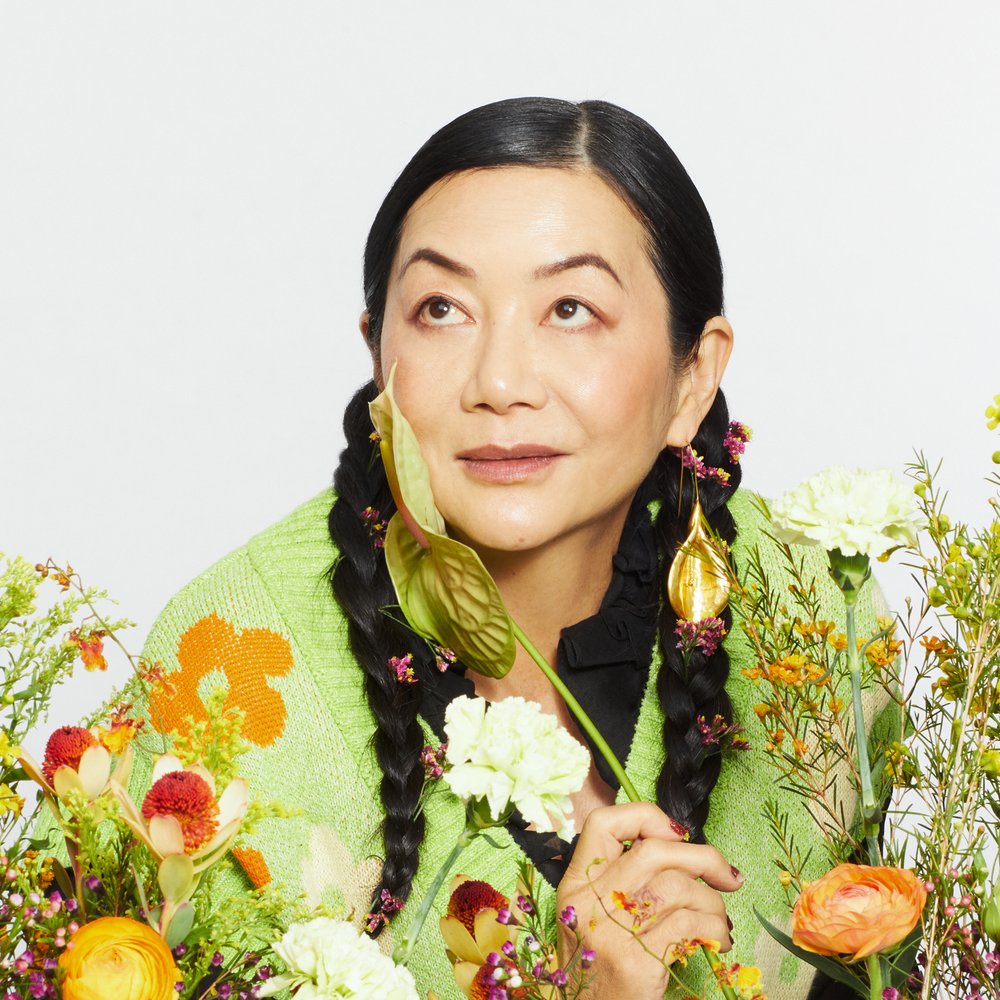
“If you have a woman in her 60’s, 70’s, 80’s then going against the flow and being kicked out of their group. That’s the end of their lives because they have no one left to be with. So a lot of people will listen to you, but they will not leave because they do not want to be exiled. So it’s a lot of peer pressure. Misinformation.”
— Ophelia Chong, AACE
Addressing the Issue with Cannabis Stigma
With any type of stigma, and a lack of willingness to have difficult conversations regarding taboo topics, comes the potential for harm and a lot of missed opportunities.
Cannabis stigma is no exception.
Opening up to the idea of having these conversations, no matter how difficult they feel, can contribute significantly to cannabis education. There’s a lot regarding cannabis that goes unsaid.
Many people fresh to the cannabis scene feel overwhelmed with where to begin. While there seems to be no shortage of formal and informal conversations about cannabis on the internet, the issue seems to be an informational overload— leaving new users with conflicting advice and recommendations about strains, dosages and more.
With over 700 different strains of cannabis, it would be ill-advised to imagine that with so many variations, cannabis lies in a one size fits all scenario. What may work for one person may not work for another.
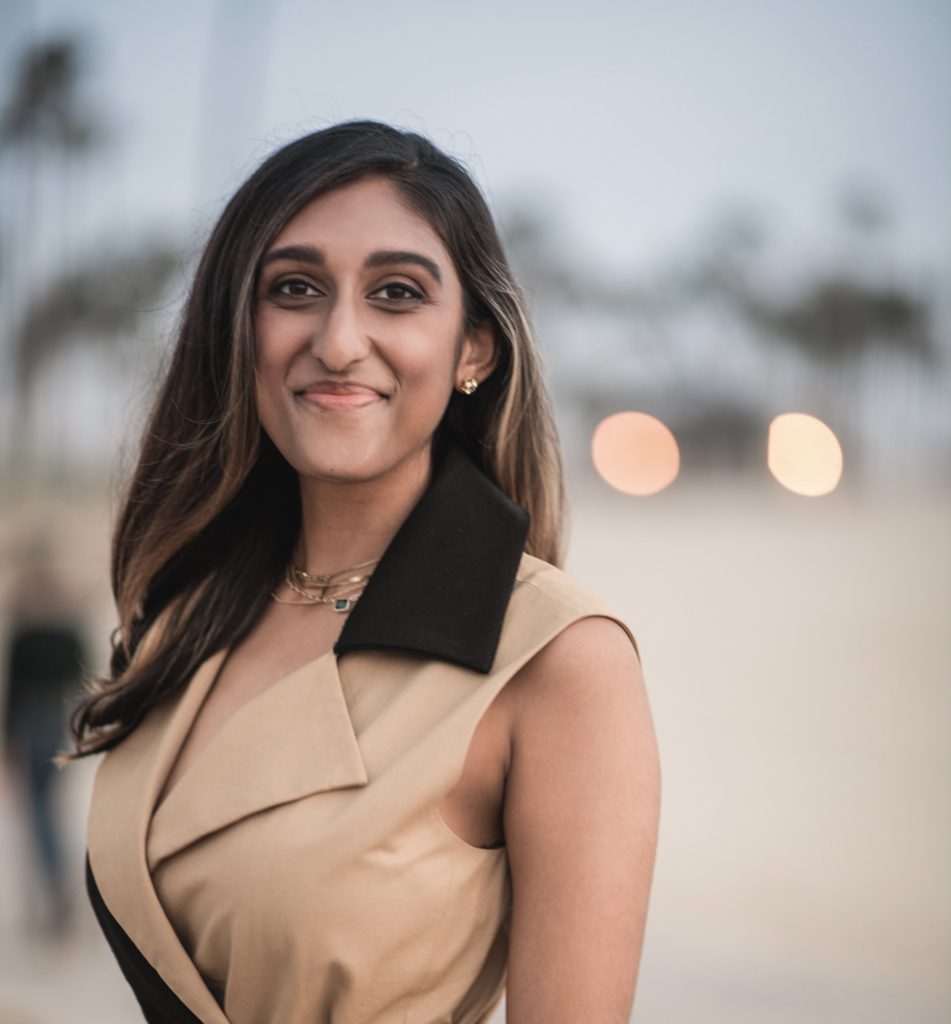
Dr. Swathi Varanasi is a bilingual pharmacist in integrative health who explains the importance of conversations between experts and patients about their cannabis use. If a certain method or potency of cannabis is not working for a user, she feels it is optimal to have a discussion exploring other options of cannabis and the benefits/risks before proceeding.
While many AAPI communities fear the plant and their lack of understanding of it, the truth of the matter is that cannabis is like any other substance. When used responsibly, it has a large potential for good.
There are many benefits of cannabis, medicinally and recreationally. It can relieve chronic pain and nausea, reduce anxiety and stress, and is known to have anti-inflammatory powers among so much more. Conversely, used irresponsibly, cannabis has the potential to do more harm than good to the user.
Eunice Kim, founder of Hi-Vi, recalls her first encounter with cannabis, which helped her manage her anxiety and insomnia from working in a high stress environment.
Hi-Vi partnered with KhuenPhu and the AAPI Cannabis Collective to deliver Modern Cannabis: A Beginner’s Guide to Conscious Consumption in efforts to help break the cannabis stigma in particularly older AAPI generations. The guidebook includes sections dedicated to the history of cannabis, the war on drugs, terminology related to cannabis, cannabinoids, proper dosing and more. Most importantly, the guide is translated from English into 12 Asian languages: Bahasa, Cambodian, Hindi, Japanese, Korean, Lao, Malay, Mandarin, Tagalog, Thai and Urdu.
Translating the literature into Asian languages takes a monumental step towards cannabis education and destigmatization by breaking the language barrier for non-English speakers. Even for English-speakers, having a mindful resource compiled for the sole purpose of introducing the world of cannabis in digestible pieces makes a world of a difference.
“I just knew that I wanted to help people discover cannabis in the right way and whatever form it took,” Kim explains when asked about her goals in founding Hi-Vi. “I kind of wanted to make sure I listened to our community, listen to what was needed and respond to that versus just saying, ‘Oh, I’m going to start something and just do it.’ Because I think I took much more of like a listening approach to figure out what’s actually needed in this space and built it based on that.”
AAPI Women in Cannabis Today
Meet five wonderful, trailblazing AAPI women in the cannabis industry today— and what they have to share about their venture into the cannabis space.
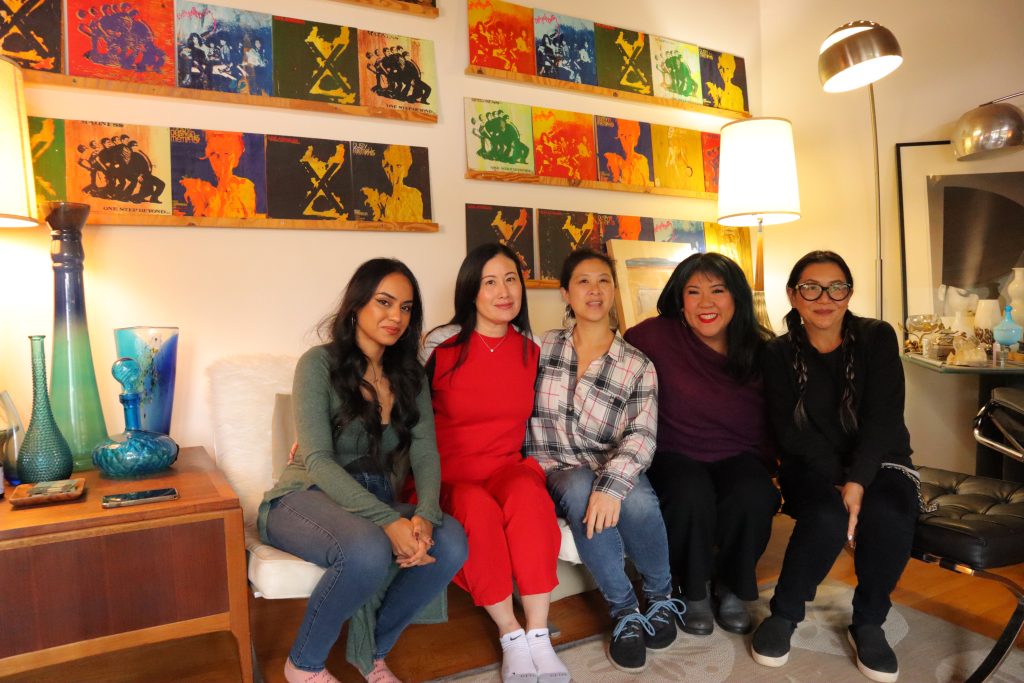
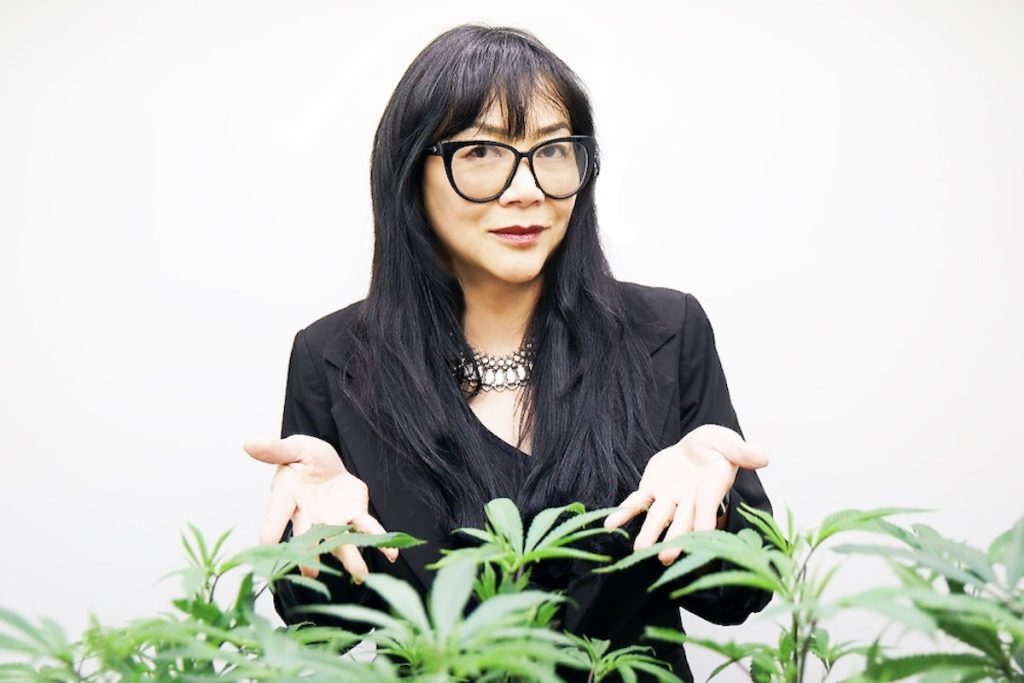
Ophelia Chong founded Asian Americans for Cannabis Education (AACE) in 2015. AACE provides a safe space for Asian communities to connect and fosters conversations about cannabis issues specific to the Asian American community.
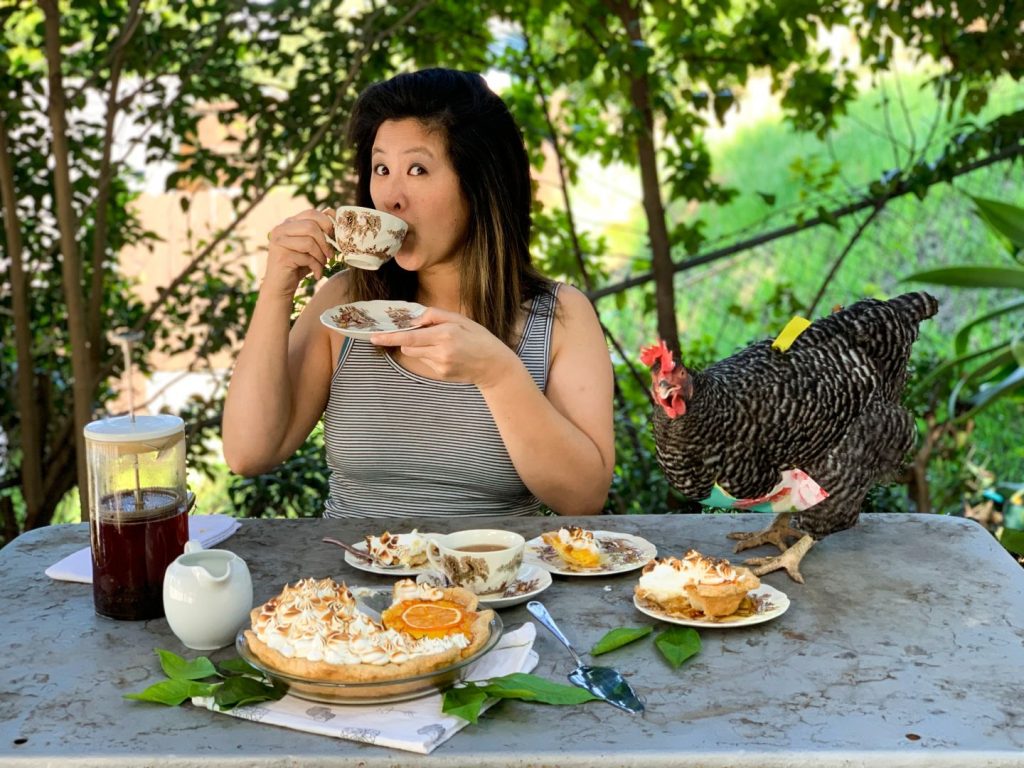
Christina Wong is a culinary cannabis creator and Founder/CEO of Fruit and Flower, a creative media company looking to meld cannabis and food. Wong shares unique cannabis-infused recipes and provides educational resources for viewers to accurately calculate their doses.
Maha Haq is the founder of Cannaclub, a student organization operating within several universities focusing on breaking down the cannabis stigma through education and connecting students with opportunities in the cannabis industry.

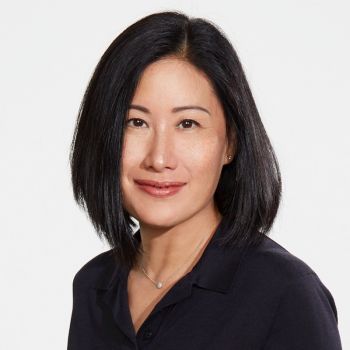

Angela Pih is the head of marketing at StateHouse Holdings, a California cannabis company overseeing cultivation, processing, manufacturing, distribution and retail.
Sian Seligman is the head of marketing at KOAN – Resonate Blends, Inc., a California-based portfolio of Cannabis Wellness and Lifestyle brands.
A Return to Our Roots
“The irony is cannabis was literally grown and cultivated in Asia— it is part of our heritage in a way. And so, for us to be so against it is mind boggling… Because Asian countries are so capitalistic and very devoted to their productivity, something that would turn them into a pothead, someone that’s lazy… They’re not going to want to touch it. I think the propaganda that surrounded [cannabis] permeated into our culture as we developed a lot of practices in imitation of the West,” said Julianna Montano, the President of Cannaclub at USC.
